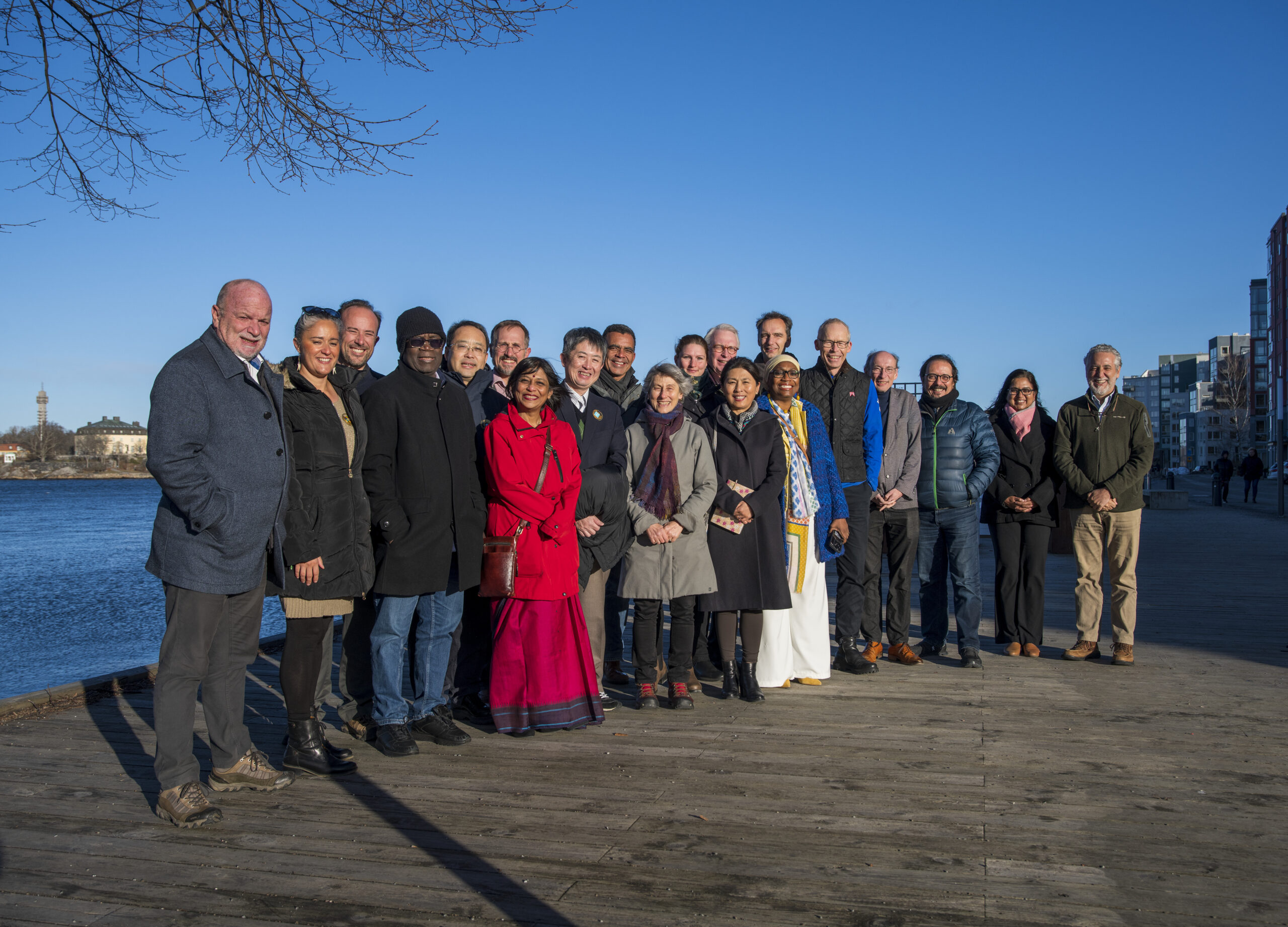Future Earth Announces Earth Commission Second Assessment with a New Cohort of Experts
New cohort of experts embark on the Earth Commissions second scientific assessment. Focus areas include quantifying safe and just boundaries for Novel Entities and the Ocean, a novel tipping points modelling inter-comparison project and advancing analysis on transformation and governance pathways.

Appointed and hosted by the global research network, Future Earth, and serving as the scientific cornerstone of the Global Commons Alliance, the Earth Commission is proud to announce the initiation of its second assessment.
In May 2023 the Earth Commission – a broad group of international researchers from the natural and social sciences – launched the Safe and Just Earth System Boundaries for climate, biodiversity, freshwater, nutrients and aerosols. These quantified boundaries were published in Nature and provide one of the most holistic measurements of Earth’s finite limits, marking a step change in understanding how to protect people and the planet. The Commission’s second major study has been accepted for publication, expected to be public in May 2024.
Building on this strong foundation, the Earth Commission’s second assessment will refine and expand on the safe and just boundaries by:
- Quantifying boundaries for new Earth System domains such as Novel Entities (including toxic substances) and the Ocean
- Increasing its focus on the just transformations necessary across all of society
- Highlighting the justice, governance and economic requirements for those transformations.
The renewed scientific workstreams will take into account the complex interactions between natural and social systems, justice, and human well-being to enhance the holistic Earth system boundaries framework under the following clusters:
- Safe and Just Boundaries
- Transformation Pathways
- Justice, Governance and Economics
- Translation, Actors and Agency
Read more about the workstreams.
New cohort of experts embark on the second phase of scientific analysis
The new cohort of experts embarking on the second cycle of scientific assessment was appointed by Future Earth, drawing on nominations from across and beyond its global research networks (over 160 nominations were considered). The final group, combining re-appointed and new Commissioners, was approved by the Directors’ Council of Future Earth.
To co-lead this next phase of scientific enquiry, the Earth Commission is delighted to have recently welcomed Prof. Fatima Denton from United Nations University to join Prof. Johan Rockström as Co-chair of the Commission. Joining them are a renewed cohort of expert natural and social scientists who will bring significant scientific expertise as new and previous Commissioners collaborate through the series of key workstreams.
Earth Commission phase two cohort:
Co-Chairs:
– Fatima Denton, Professor and Director of the Institute for Natural Resources in Africa at the United Nations University
– Johan Rockström, Professor and Director of the Potsdam Institute for Climate Impact Research and Professor in Earth System Science at the University of Potsdam
Earth Commissioners:
– Xuemei Bai, Distinguished Professor, Australian National University
– Govindasamy Bala, Professor, Indian Institute of Science
– Stuart Bunn, Professor, Australian Rivers Institute, Griffith University
– Fabrice DeClerk, Science Director, Sr Scientist EAT, Alliance of Bioversity
– Joyeeta Gupta, Full professor of environment and development in the Global South at the Amsterdam Institute for Social Science Research of the University of Amsterdam and IHE Institute for Water Education
– Carl Folke, Director of the Beijer Institute, Founder and Chair of the Scientific Committee of the Anthropocene Laboratory, the Royal Swedish Academy of Sciences, and Founder and Chair of the Board of the Stockholm Resilience Centre
– Tim Lenton, Founding Director of the Global Systems Institute at the University of Exeter and Chair in Climate Change and Earth System Science
– David Obura, Director, CORDIO East Africa – Coral reef ecology and sustainability, Chair IPBES (2023-2026)
– Steven Lade, ARC Future Fellow at the Fenner School of Environment & Society, Australian National University; Docent (Associate Professor) at the Stockholm Resilience Centre.
– Pablo Marquet, Full Professor in the Department of Ecology at the Pontificia Universidad Católica de Chile, External Professor, Santa Fe Institute and Associate Scientist, Center for Mathematical Modeling
– Aditi Mukherji, Director, Climate Change Adaptation and Mitigation Impact Action Platform of the CGIAR
– Taikan Oki, Special Advisor to the President, Professor at Graduate School of Engineering, The University of Tokyo
– Peter Verburg, Professor, Vrije Universiteit Amsterdam, Swiss Federal Institute WSL
– Ricarda Winkelmann, Founding Director, Max Planck Institute of Geoanthropology. Professor, University of Potsdam and Potsdam Institute for Climate Impact Research
– Miriam Diamond, Professor, University of Toronto
– Juan Camilo Cárdenas, Professor of Economics at the Universidad de los Andes in Colombia and the University of Massachusetts Amherst (USA), Director of the Sustainable Development Goals Center for Latin America and the Caribbean (CODS)
– Laura Pereira, Associate Professor, Sustainability Transformations and Futures at the Global Change Institute at Wits University, Researcher, Stockholm Resilience Centre
– Keywan Riahi, Director of the Energy, Climate, and Environment Program at the International Institute for Applied Systems Analysis (IIASA)
– Rashid Sumaila, University Killam Professor and Canada Research Chair (Tier 1) in Interdisciplinary Ocean and Fisheries Economics at the Institute for the Oceans and Fisheries, and the School of Public Policy and Global Affairs, University of British Columbia
– Detlef van Vuuren, Project leader of the IMAGE integrated assessment modeling team at the PBL Netherlands Environmental Assessment Agency and professor in Integrated Assessment of Global Environmental Change at the Faculty of Geosciences, Utrecht University
– Cunde Xiao, Director of State Key Laboratory of Earth Surface Processes and Resource Ecology, Beijing Normal University
DATE
March 26, 2024AUTHOR
Future Earth Staff MemberSHARE WITH YOUR NETWORK
RELATED POSTS
Program Now Available for the Year’s Top Sustainability Science and Innovation Event in Finland
Apply for the 2024 Pathways Autumn School: Transformative Research for a Just World and a Habitable Planet
Future Earth Experts Contribute to “10 Must Knows” as a Guide to Preserving Biodiversity